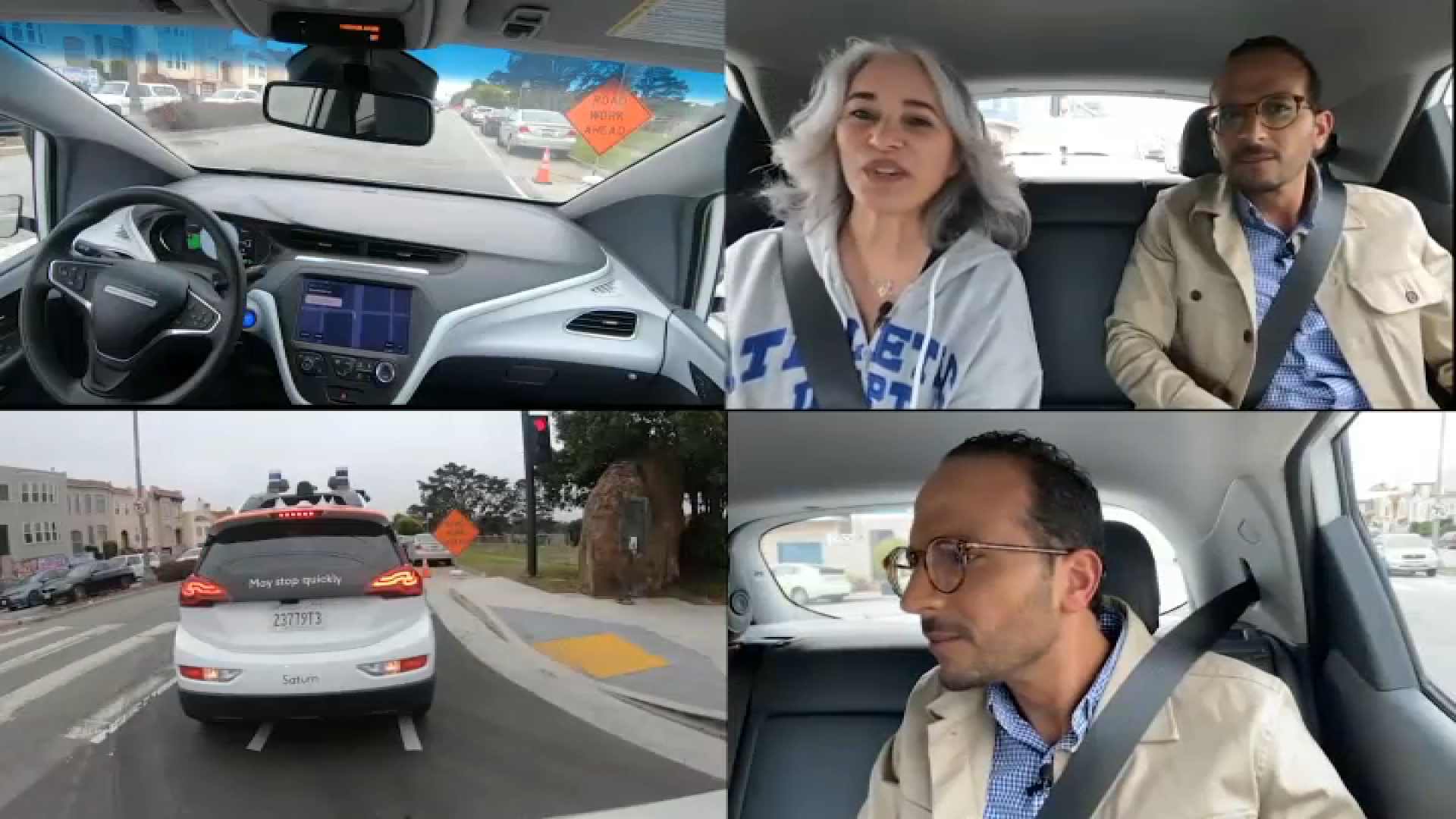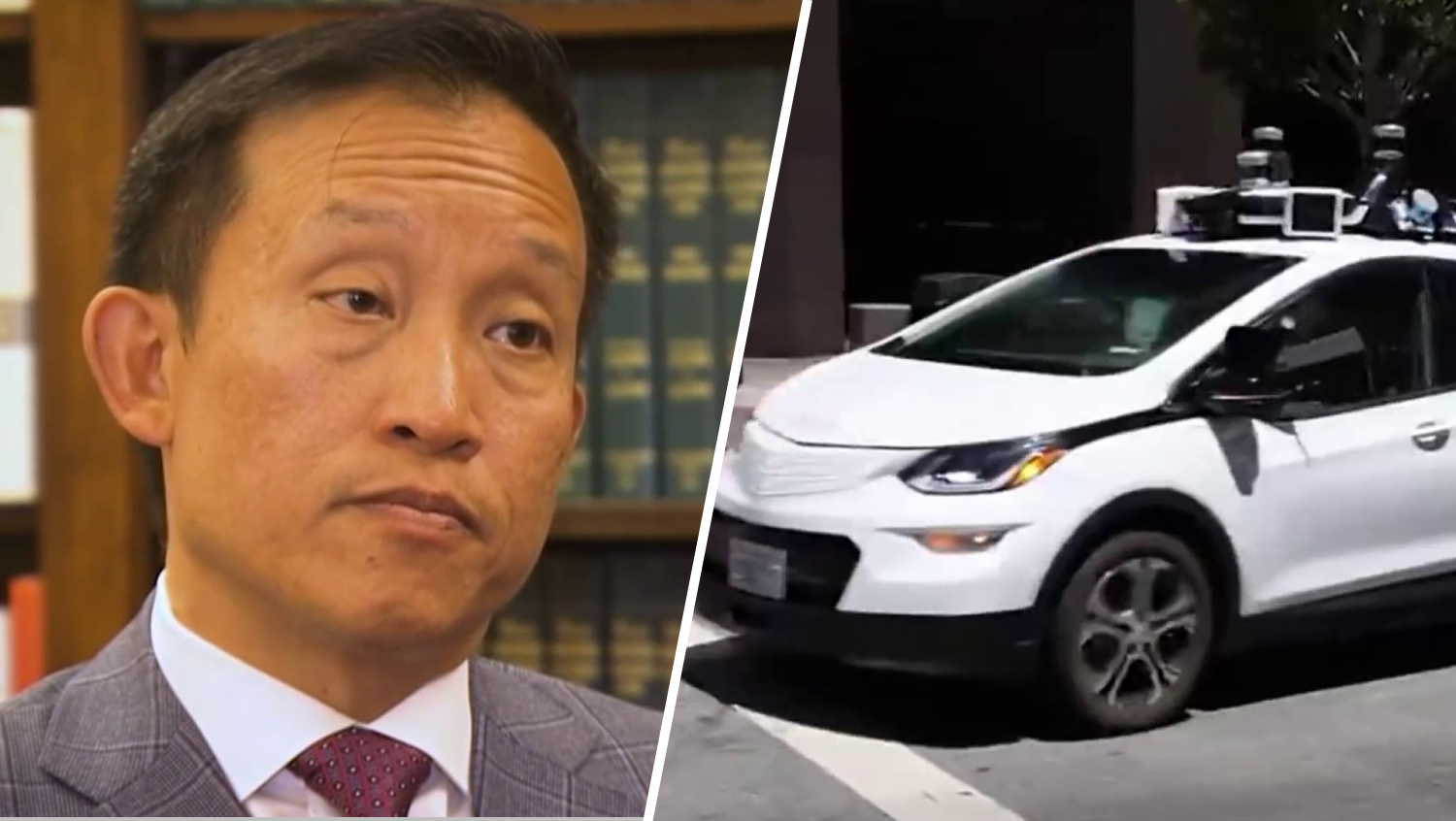Hundreds of driverless cars are now an everyday part of traffic in San Francisco as they shuttle passengers across town, but how safe are they and how do they compare to human drivers? Waymo, owned by Google's parent company Alphabet, just released a new study that attempts to shed light on its own track record as one of San Francisco's largest driverless car companies. The findings, described as first-of-its-kind research, make the case that Waymo's driverless fleet is able to steer clear of certain types of collisions at a higher rate than human drivers.
“It shows that we’re safe,” said Trent Victor, Waymo Director of Safety Research and Best Practices. “We're seeing the fruits of our focus on safety.”
Waymo, in partnership with insurance giant Swiss Re, analyzed insurance liability claims in an effort to collect collision data involving both driverless vehicles and human-driven cars. The study utilized 600,000 claims stretching over 125 billion miles to create a "baseline" for human driver collisions that could be compared against Waymo's record involving 3.8 million miles traveled without a human in the driver's seat.
Attempting to draw fair comparisons between the safety record of driverless cars versus human drivers is a complex feat that has repeatedly proven difficult for the autonomous vehicle industry, according to experts.
Get a weekly recap of the latest San Francisco Bay Area housing news. Sign up for NBC Bay Area’s Housing Deconstructed newsletter.
“The kind of reporting that is used in insurance is much more standardized than any other kind of collision data that you have around,” said Luigi Di Lillo, Head of Products and Partnerships for Swiss Re. “The novelty of this study is to connect the insurance claims data to safety directly.”
Waymo’s driverless vehicles, which currently operate in San Francisco and Phoenix, experienced 76% fewer accidents involving property damage compared to human-driven cars, according to the study. For every million miles traveled, human drivers filed 3.26 property damage claims compared to 0.78 for Waymo's driverless cars.
I think this is an opportunity for people to get to know Waymo as something that’s different than our competitors.
Trent Victor, Waymo Director of Safety Research and Best Practices
“This is an amazing moment,” said Victor, who spoke to the Investigative Unit in his only television interview. “I think this is an opportunity for people to get to know Waymo as something that’s different than our competitors.”
Waymo’s main competition is GM’s Cruise, which recently cut its fleet of driverless cars in half at the direction of California’s Department of Motor Vehicles. The DMV announced its request at the same time it revealed it was launching an investigation into Cruise’s safety record following a series of headline-making accidents, including a collision with a San Francisco fire truck. According to Cruise, its vehicle had a green light when it struck the fire engine, which had its sirens on and appeared to be en route to an emergency scene.
Following the state's request to reduce Cruise's fleet, a company spokesperson provided NBC Bay Area with a statement, noting "Cruise positively impacts overall road safety," adding that Cruise looks forward to "working with the DMV to make any improvements and provide any data they need to reinforce the safety and efficiency of our fleet."
While the DMV continues its investigation, Cruise’s driverless fleet will be capped at 50 cars during the day and 150 cars at night. In August, Waymo told state regulators it possessed a total fleet of 250 driverless cars in San Francisco, of which about 100 are on the road at any given time. Those figures remain largely unchanged, according to a Waymo spokesperson.
Just last month, state regulators with the California Public Utilities Commission granted approval to both Waymo and Cruise to expand their ride-hailing services across San Francisco 24/7, with no limits on how many driverless cars they can put on the road.
Waymo’s new study also notes the company’s driverless vehicles have not been involved in a single crash resulting in “bodily injury,” however, some critics have questioned whether the cars have been on the road long enough to begin making fair comparisons to human drivers. For example, Waymo’s driverless cars have traveled roughly 4 million miles, but traffic-related fatalities are routinely measured per 100 million miles. Across America's roadways last year, there were 1.37 fatalities for every 100 million miles traveled, totaling 42,795 lives lost in vehicle traffic crashes, according to the National Highway Traffic Safety Administration. Each year, human drivers log more than 3 trillion miles on the road.
“It’s interesting that we were able to show statistical significance with so little data,” Victor said. “That has to do with two things: one is that we have very robust baselines from Swiss Re, and the other is that we have incredible safety performance.”
Waymo did not release the raw data it used to come up with its findings, saying that information is “proprietary.”
"The information they released is the results of the study rather than all the details," said Steven Shladover, a research engineer with the Berkeley's Institute of Transportation Studies. "Of course, as researchers, we like to look more at the details and the methods for the analysis."
Shladover said he was also "disappointed" the study grouped its findings for both San Francisco and Phoenix instead of sharing separate data points for each city. While Waymo's study only offered combined figures, it examined different time spans for each city: Waymo's Phoenix data spanned more than four years (March 2019 to Aug. 1, 2023), while Waymo's San Francisco data incorporated less than two years' worth of driving (March 2022 to Aug. 1, 2023), according to a Waymo spokesperson.
"It lumped them all together and those are quite different areas," he said. "I think it would have been more interesting to see a comparison for San Francisco and then a separate comparison for Phoenix."
Leaders at Waymo and Swiss Re said they plan to eventually submit their study to a scientific journal so that it can be independently reviewed, however, neither company would say when that might happen.
“We are targeting the right journal,” said Di Lillo. “I’m very picky on that.”
Watch our entire investigative series
- Part 1: Driverless cars seek San Francisco expansion despite worries tech is unsafe
- Part 2: CPUC votes to expand driverless car operations in San Francisco
- Part 3: San Francisco city attorney files motion to pump the brakes on driverless cars
- Part 4: Google's Waymo says insurance data shows its driverless cars are safer than humans
- Part 5: Hit-and-run driver strikes pedestrian, tossing her into path of Cruise car in San Francisco
- Part 6: Driverless trucks and robot deliveries promise fewer traffic jams than robotaxis
- Part 7: Cruise says its robotaxis can now better detect emergency vehicles
- Part 8: California DMV orders Cruise's driverless cars off the road
- Part 9: Driverless cars immune from traffic tickets in California under current laws
- Part 10: GM's Cruise lays off nearly 25% of its workforce
- Part 11: Waymo's driverless cars surpass 7 million miles, but are they safer than human drivers?
- Part 12: Cruise probe blames poor internet, bad leadership, and "flawed" decisions for company's woes
- Part 13: Driverless Cruise car accused of almost hitting 7 yr old after similar close call involving kids
- Part 14: Cruise offers to pay $112,500 in fines to settle claims driverless car company misled regulators
- Part 15: Uber Eats now uses Waymo Self-Driving cars to offer driverless deliveries
- Part 16: Bills aimed at closing traffic ticket loophole for driverless cars get initial green light
Contact The Investigative Unit
submit tips | 1-888-996-TIPS | e-mail Bigad
Contact The Investigative Unit
submit tips | 1-888-996-TIPS | e-mail Bigad




